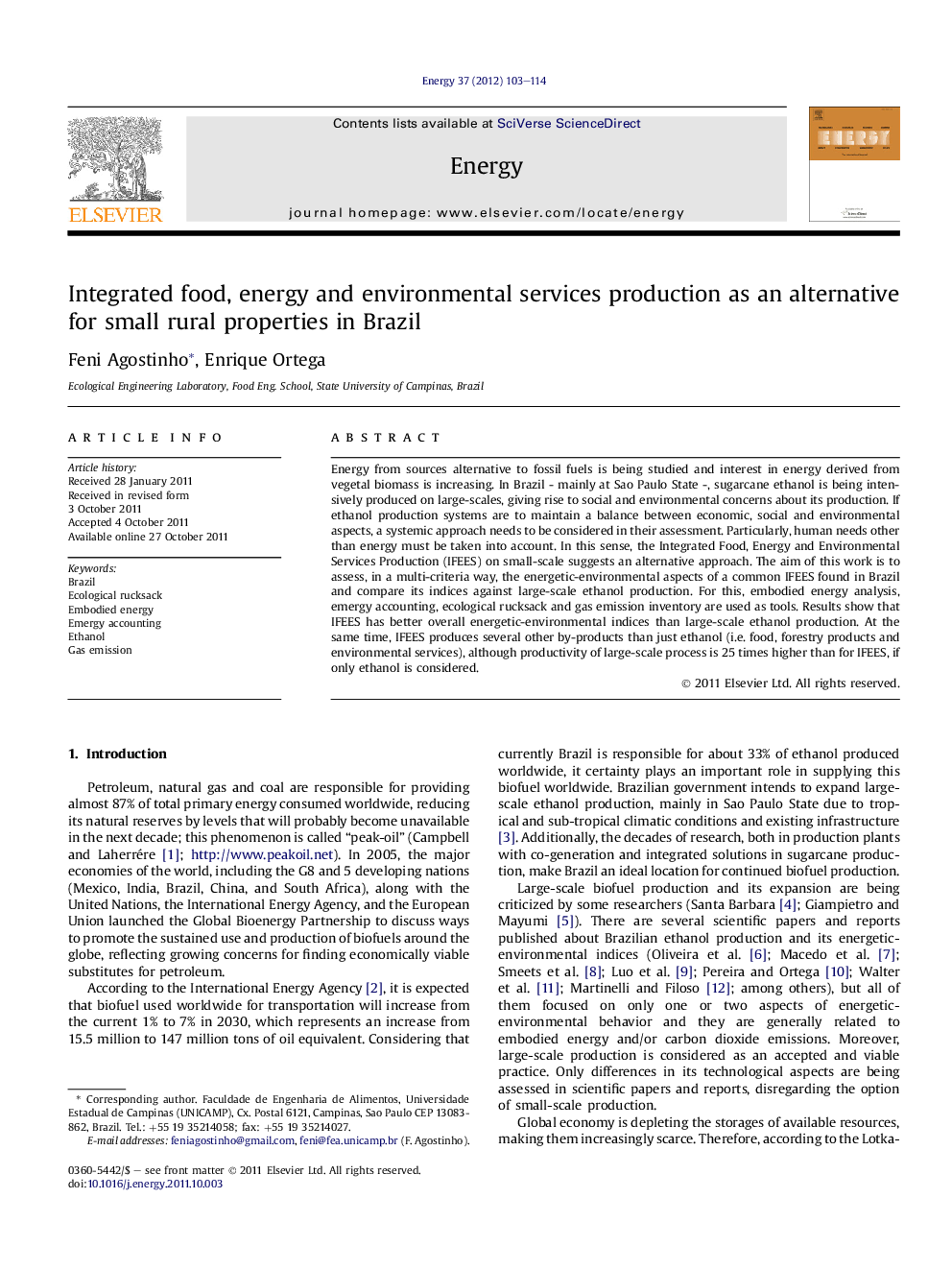| Article ID | Journal | Published Year | Pages | File Type |
|---|---|---|---|---|
| 1733913 | Energy | 2012 | 12 Pages |
Energy from sources alternative to fossil fuels is being studied and interest in energy derived from vegetal biomass is increasing. In Brazil - mainly at Sao Paulo State -, sugarcane ethanol is being intensively produced on large-scales, giving rise to social and environmental concerns about its production. If ethanol production systems are to maintain a balance between economic, social and environmental aspects, a systemic approach needs to be considered in their assessment. Particularly, human needs other than energy must be taken into account. In this sense, the Integrated Food, Energy and Environmental Services Production (IFEES) on small-scale suggests an alternative approach. The aim of this work is to assess, in a multi-criteria way, the energetic-environmental aspects of a common IFEES found in Brazil and compare its indices against large-scale ethanol production. For this, embodied energy analysis, emergy accounting, ecological rucksack and gas emission inventory are used as tools. Results show that IFEES has better overall energetic-environmental indices than large-scale ethanol production. At the same time, IFEES produces several other by-products than just ethanol (i.e. food, forestry products and environmental services), although productivity of large-scale process is 25 times higher than for IFEES, if only ethanol is considered.
► Large and small-scale systems of sugarcane ethanol production are compared. ► Energy, emergy, ecological rucksack and gas emissions indices were calculated. ► Small-scale systems cause lower load on environment by producing ethanol and food. ► Large-scale systems have higher emergy efficiency and ethanol productivity. ► A trade-off exists and decision makers should consider a systemic view.
